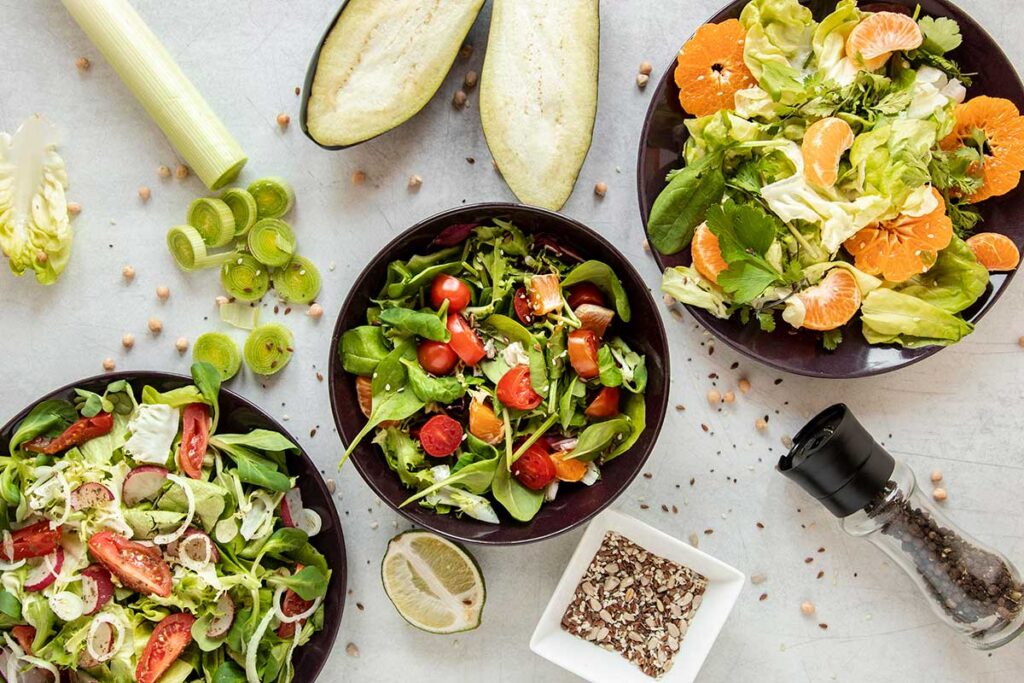
With the New Year, it’s the perfect time to jump into the tradition of setting resolutions. But let’s keep it real – who sticks to a resolution throughout the year? Instead, set realistic goals for the year, ones you can achieve. Setting goals can help you plan how you want to improve your health and keep you motivated.
Managing multiple sclerosis (MS) naturally isn’t about drastic changes. It’s all about setting goals that you can keep – ones that really make a difference! Create realistic goals so you don’t feel overwhelmed and feel like quitting.
For example, going “cold turkey” with your diet can create withdrawals. A gradual change is more effective in long-term success. Studies found the majority of smokers who went “cold turkey” went back to smoking. Only about 5% were able to continue to stop smoking after six months.
Highly processed foods, which may share characteristics with drugs of abuse (e.g. high dose, rapid rate of absorption) appear to be particularly associated with “food addiction.
– United States National Library of Medicine
It’s easier to take small steps. Think of it as a series of small victories. Instead of aiming high, start with manageable steps. Whether it’s more veggies or a quick daily stroll, small wins build up. Listen to your body; it has its own language and paying attention is important. If a certain exercise feels good, keep at it. If a particular food energizes you, make it a regular on your plate. Trust your instincts and let your body guide you.
The cause of MS is due to environmental factors which include many factors. A 20-year study found that Epstein–Barr virus (EBV) is the main cause of MS. However, EBV might be a key piece, but there’s more to it.
Chronic inflammation is the cause of MS which includes:
- Poor Diet
- Infections (bacteria, parasites, viruses, and yeast overgrowth)
- Environmental toxins (heavy metals, mold, pesticides, etc.)
- Chronic stress
- Hormones (adrenaline, cortisol, etc.)
MS Diet

Image by Freepik
I’ve been on many different diets for MS and what I’ve discovered is – there is no “perfect” diet. Start by eating whole foods and adjusting them to fit your needs for the best results. An anti-inflammatory diet includes foods that fight diseases and not feed them.
Foods to avoid:
- Dairy
- Gluten
- Refined sugar
- Artificial flavors and sweeteners
- Natural flavors
- Corn (it’s mostly a GMO)
- Soy (it’s mostly a GMO)
- MSG (harms the brain and central nervous system)
- Nutritional yeast (it’s has MSG in it)
- Canola oil (it’s mostly a GMO)
- Pork (it’s high in fat and prone to parasites)
- Farmed fish (it’s washed in toxic chemicals due to parasites)
- Processed citric acid (it’s mostly derived from corn)
- Peanuts (a common allergen)
- Eggs – both Dr. McDougall (McDougall Diet) and Dr. Wahls (The Wahls Protocol) recommend avoiding eggs
Although considered healthy, the foods below do not aid the body in detoxification. It’s best to avoid or rarely eat these to help your body heal quicker. You can add these back after your body has healed.
Foods to avoid temporarily:
- Beans
- Chickpeas
- Lentils
- Gluten-free grains like mullet and quinoa
Healthy Foods to Eat

Image by pvproductions on Freepik
After that long list of foods to avoid you may be wondering what you can eat. So, let’s talk about the real rockstars in our kitchen – fruits, veggies, herbs, and spices. These aren’t just ingredients, these are the foods that are healing!
These foods have:
- Antioxidants fight off the bad guys in your body called free radicals
- Phytonutrients are the reason fruits and veggies have vibrant colors and reduce inflammation
- Fiber promotes gut health and keeps everything in balance
- Minerals build strong bones, support nerve function, and keep your heart beating
- Vitamins have many health benefits, think of them as your body’s own health boosters
Next time you’re munching on that salad or sipping on a smoothie, realize that you’re not just eating. You’re feeding your body foods that fight diseases. Here’s to the healing power of nature’s goodies!
Foods to include:
- Fruits
- Vegetables
- Herbs and spices
- Nuts and seeds
- Wild-caught fish
- Pasture-raised poultry
- Grass-fed and finished meats (e.g. beef, bison, lamb, rabbit)
Don’t underestimate the power of herbs and spices! They’re not just there to make your food taste amazing; they have many health benefits. Herbs like turmeric, garlic, and ginger have anti-inflammatory and immune-boosting properties.
Eat a variety of different foods. Keep things interesting by mixing up your meals – don’t always eat the same thing. Variety prevents boredom and guarantees your body gets plenty of nutrients.
Make It a Lifestyle, Not a Fad

Image by tirachardz on Freepik
Stopping the progression of MS is more than diet. It also includes your lifestyle habits. A clean lifestyle typically means making choices that prioritize overall health.
Here’s an example of what a clean lifestyle might look like:
- Begin the day with a glass of water to hydrate the body and kickstart metabolism.
- Include a short morning stretch or yoga routine to wake up the body and promote flexibility.
- Exercise each day, whether it’s a walk or a workout session – I like OptimalBody Personal Fitness.
- Prioritize whole, unprocessed foods over highly processed and refined options.
- Take short breaks during the day to stretch and move, promoting circulation.
- Practice mindful eating by savoring each bite and avoiding distractions during meals.
- Lower your stress by meditating, deep breathing, and spending time in nature.
- Drink water throughout the day to stay hydrated.
- Establish a calming bedtime routine.
- Choose natural and chemical-free personal care products and cleaning supplies. Check out my Clean Personal Care Products page.
- Connect with friends and family in person, by phone, or virtually.
- Do things that bring joy into your life whether it’s reading, crafting, or cooking.
- Develop a positive mindset.
Instead of thinking of your goals as a one-time thing, add them into your daily life. Flexibility is key! Adjust and fine-tune your health goals along the way for an even better fit.
Setting Realistic Health Goals

Image by Waewkidja on Freepik
No one is perfect! Life happens, and so do occasional slip-ups. Instead of aiming for perfection, celebrate each progress. If you do slip up, don’t be too hard on yourself. Remember, it’s about making healthier choices and moving forward.
Break down your long-term health goals into smaller, achievable milestones. Try a new healthy recipe weekly, boost daily steps, or prioritize relaxation. Small wins keep you motivated on the healing journey.
Remember, life is a continuous learning process. Stay open to discovering what works best for you. Be flexible and adjust if a healthy aspect isn’t working for you. If a particular food item is causing problems – remove it. If you’re struggling with stress – get professional help.
The key is to add these healthy habits into your daily life that become a habit. It’s not a quick fix; it’s a lifelong commitment to your well-being.

The Ultimate Guide to Surviving & Thriving with MS
Unlock the key to a vibrant life with multiple sclerosis by subscribing to my newsletter and gaining exclusive access to ‘The Ultimate Guide to Surviving & Thriving with MS.’ It’s packed with valuable information on natural management strategies and clean health lifestyle practices that you can start today.
Want to remember this health tip? Pin it to your Pinterest board!

Image by KamranAydinov on Freepik
Setting Realistic Health Goals for the New Year





